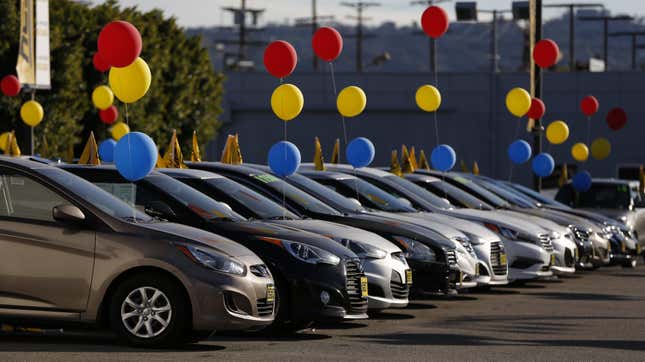
Doesn’t it seem like everything costs too much? Wages have been stagnant longer than many of us have been alive, despite us all working more — and doing more while at work — than ever. Rents have been skyrocketing for fifty years, gas prices seem permanently inflated, and car payments are creeping ever upwards.
At some point, there’s no room left in the budget for anything else. You revert to the lowest points on Maslow’s hierarchy — food and shelter take center stage, and that’s about all you can afford to keep around. Only, in the U.S., our lack of public transit infrastructure means there’s one other core need you can’t cut: You still need your car to get to work. Now, it seems commuters are making the obvious choice, and cutting out nonessentials in order to keep driving.
CNBC has a report on just how far people have to go in order to maintain their four-wheeled access to the world, based on a survey from Santander Bank. The survey found that nearly half of all car buyers are picking purely on price, and that the majority will make sacrifices to keep their cars on the road. From CNBC:
Seventy-eight percent of middle-income households earning between $47,000 to $142,000 rely on a vehicle to get to work, Santander Bank found in a new survey, and 74% are willing to make financial tradeoffs to maintain access to cars. For instance, 61% would give up dining out, while 48% would pass on vacations and 48%, entertainment.
Almost half, or 48%, of the 2,213 survey respondents say they prioritize cost over practicality, comfort and performance when shopping for a new car, up from 37% who said so in pre-pandemic years. Factors like maintenance and fuel costs are also being taken into account.
You ever get the feeling that we’re all trapped in the belly of a horrible machine, and the machine is bleeding to death? It feels like something’s broken — like it’s increasingly impossible to do anything other than work, sleep, work, sleep, because there’s simply no money left over to spend on yourself. Maybe one day we’ll climb a little higher on that pyramid, but that day doesn’t seem to be coming soon.